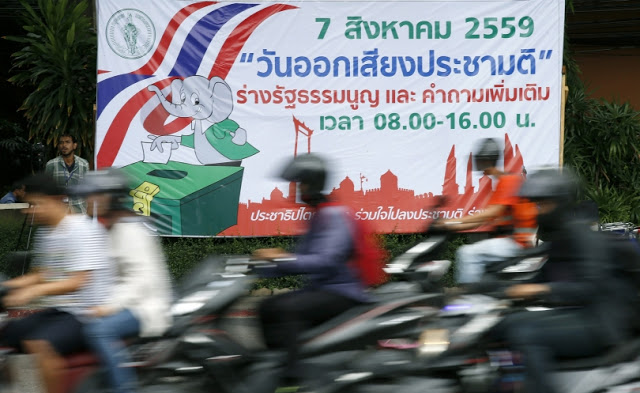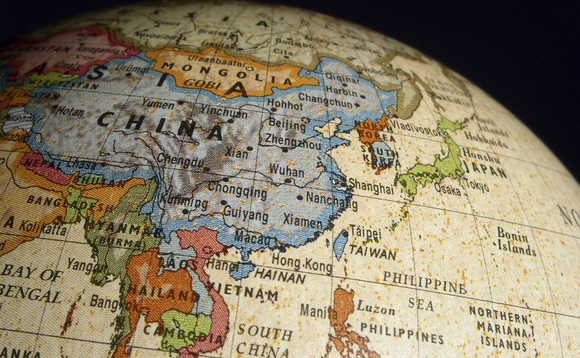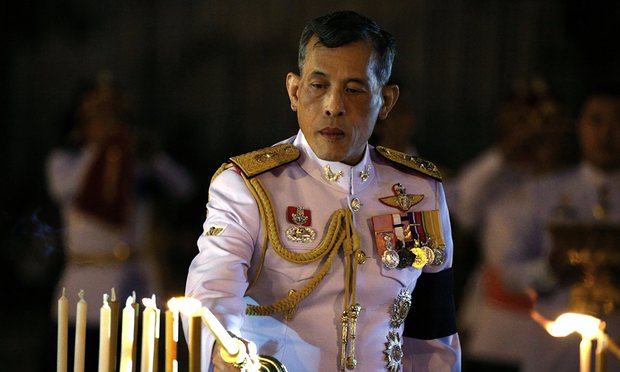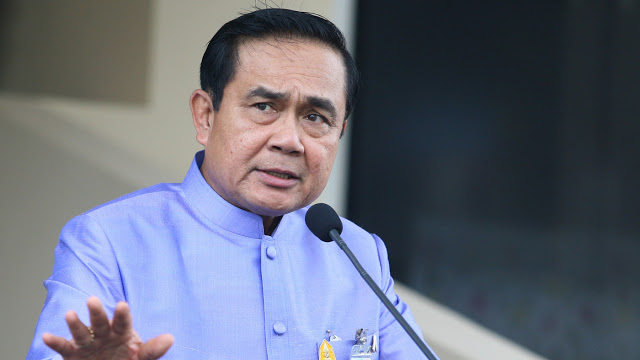Australian-based lecturer of Southeast Asian history, Dr. Patrick Jory, once wrote during Thailand’s 2013-2014 street protests against embattled Prime Minister Yingluck Shinawatra, that it was “getting closer to game over” for Thailand’s traditional institutions, and that the initiative was held by what he called, the “Thaksin forces.”
In hindsight, Jory’s flawed and uninformed analysis seems almost comical. Had he truly assessed the strengths and weaknesses of Thailand’s opposing camps, rather than tallied up the perceived authority and legitimacy each side held, he might have seen the critical weaknesses of his so-called “Thaksin forces,” and the likelihood that they, not Thailand’s institutions, were in grave danger.
With this Sunday’s charter vote coming up, that danger is deepening even further, allowing Thailand’s institutions to restore both a balance of political power, and something resembling peace and stability most Thais now desperately crave.
The Weakness of the Thaksinists
In the 2011 elections which led to Thaksin Shinawatra’s sister, Yingluck Shinawatra coming to power, a meagre 35% of the eligible electorate would cast votes for Shinawatra’s Pheu Thai Party. In fact, Pheu Thai failed to secure even a popular majority during the election.
Perhaps more damning still is what precisely that 35% broke down further into. Far from substantial grassroots support, that 35% composed mostly of voters lured to the polls with populist schemes including everything from promises of cheap loans for cars and houses, to free computers, to heavily subsidised (and soon to be revealed as unsustainable) rice subsidies for farmers.
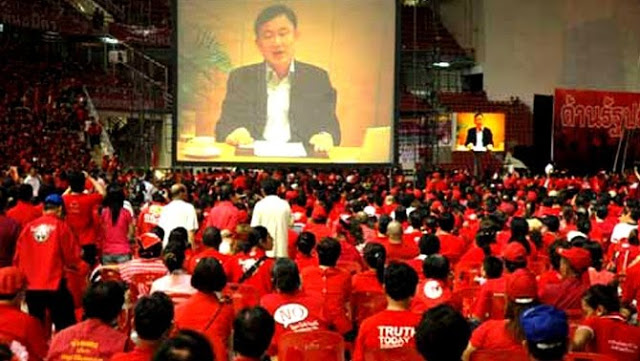
Only perhaps 7% of Thailand’s population, in a 2010 Asia Foundation study, were found to identify as “strongly red,” red referring to the colour Shinawatra’s followers don during street demonstrations. But even this has been revealed by thorough demographic studies to amount to far less than the revolutionary schism some like to propose is forming at the centre of Thai society.
Among that 7%, many still respect Thailand’s traditional institutions, including both its monarchy and its military. Many misconstrue “red support” as being uniformly anti-monarchy, or anti-military. It simply isn’t so.
And even among that 7%, only approximately 30,000 followers actually would regularly take to the streets for Shinawatra (when called upon and provided busses by Shinawatra’s political machinery). And inevitably when violence would start, the number of “true Shinawatra supporters,” those willing to risk their lives to preserve his political power, would dwindle below even a thousand, with those remaining indistinguishable from hooligans would might opportunistically take advantage of the violence and mayhem no matter what the supposed cause was.
Meagre mobs doth not a revolution make. Neither does 35% of the electorate turning up for free handouts. And the enduring damage those handouts have done to the Thai economy will not quickly be forgotten.
Jory and other experts in his vein failed to assess any of this despite at the time of their analysis all of this information being readily available and demonstrably relevant.
The Vote This Sunday
It is difficult to predict the outcome of the vote. Polling suggests the referendum for the nation’s new charter will pass soundly. However, there are attractive benefits either way regardless of whether the charter passes the vote.
A majority “no” vote will allow another charter to be drafted, extending the interim government’s time in power for at least another half-year. This will further impede Shinawatra’s creaky political movement, already suffering from severe atrophy as well as many legal setbacks as Thai courts systematically dismantle it in the wake of years of criminal conduct while in power.
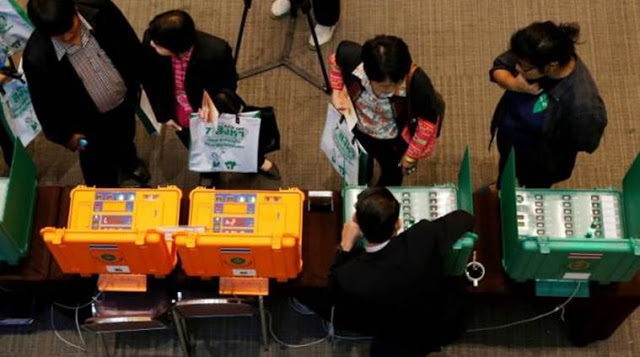
A majority “yes” vote will validate the current government’s vision for Thailand’s future, and put into motion a new system of checks and balances that will make it extraordinarily difficult for Shinawatra or his allies to assume, let alone abuse power as they have done in the past.
For Shinawatra, the vote will be condemned either way, but beyond protests he sponsors directly, or less attractive still, violence and terrorism he attempts to orchestrate, there is little for him to do but complain.
The “End Game” is not Near…
However, the “end game” is not near, because, as a lecturer of history like Jory should know, human civilisation exists within a continuum where institutions and centres of power struggle perpetually against one another.
Until both the source of political and economic strength of either side in Thailand’s political crisis is depleted, that struggle will continue on. And such a juncture will not arrive through a single court decision, the death of a prominent political figure including Thaksin Shinawatra himself, or even a coup or counter-coup.
Either side, no matter how fatal a political blow may be perceived as having been, has the capacity to take advantage of mistakes made by their opponents and yet upend the game so long as their source of political and economic power remains intact.
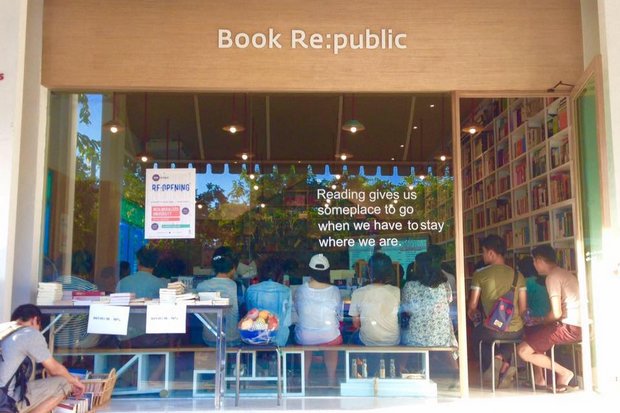
For Shinawatra’s opponents, allowing him and his networks to maintain their assets within Thailand is perhaps a mistake. This includes the extensive networks created under the guise of nongovernmental organisations and often funded by the United States and European governments.
The ability for Shinawatra and his foreign backers to infiltrate the police, military, media, academia and other institutions with the vast wealth and connections these assets afford them, leaves an open-ended opportunity to seize on a momentary slip-up by Thailand’s current government.
An old Thai adage warns to strike a snake in its head, not its body. The reasoning for this being that anything less than a death blow not only allows the snake to retaliate, but to do so wounded, desperately and dangerously striking back.
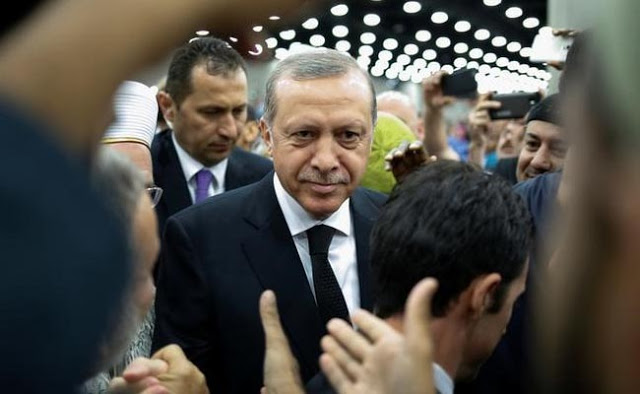
The ongoing political, military and institutional purge in Turkey, aiming to permanently eradicate the political and economic source of strength of Ankara’s enemies, is an example of the great lengths necessary to fully and permanently eliminate one’s adversary.
Thailand’s current government should not hesitate to think for a moment that should Shinawatra get the upper-hand, he would not do likewise within Thailand. Between 2001-2014, he was already well on his way toward creating the parallel institutions required to do just this.
The real question is, with Thailand’s institutions now holding the upper-hand, will they do the same?
The New Atlas is a media platform providing geopolitical analysis and op-eds. Follow us on Facebook and Twitter.
